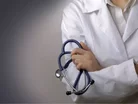Helping healthcare professionals cope with patient death

Written by Sarah Brooks
For doctors and nurses, the toughest part of their job is when they lose a patient. How do they deal?
Some internalize their emotions and become numb to the situation, some externalize the problem and talk about it to other staff members and others, even though this can be a bit morbid, use humor to avoid facing the actual emotions that they're feeling.
The best way doctors and nurses can help recover from the loss of a patient is by speaking with experienced doctors or senior nurses at the hospital.
Those who have been working at the hospital for years understand the grieving process and can sympathize to those going through it for the first time. Though losing a patient never gets easier, it does get easier to talk about it.
The way that doctors and nurses grieve also depends on what the relationship with the patient was like.
Length of Relationship Oftentimes Matters
Typically, it the relationship was long-standing and the doctor or nurse really got to know the patient on a personal level, the loss will be significantly greater than if the doctor or nurse had little to no relationship with the patient (though even that is difficult, too).
Unfortunately, most hospitals do not have a system in place that helps doctors or nurses when a patient is lost.
Some medical schools and hospitals train their students and staff on how to approach the grieving family, but there's very little advice or training on how they should help themselves.
Since each death is different and each situation is unique, hospitals and schools find it hard to provide any sort of formal training on the subject.
Also, since it's an emotional issue, there is no 'right or wrong' way to grieve - each individual must figure out what works for them.
It's important to realize, too, that most people who work in the medical field have a strong desire to help those around them and improve their quality of life.
Nurses are typically caring, compassionate, friendly and willing to go out of their way to help others.
Though logical, they have a big heart and can easily get emotional when dealing with the death of a patient. It's also perfectly fine for doctors and nurses to seek outside help in the form of a therapist or counselor to help sort through their emotions.
Answers Don’t Always Immediately Come
Nurses and doctors shouldn't expect to know or understand how they grieve right away.
It's a process that takes time, and while they can hope to handle the situations better with time, it's never going to get 'easier.'
Develop a support system within your hospital so you don't have to grieve alone. Be there for other staff members that may be grieving a loss and offer words of support and encouragement.
The hospital staff is a team and everyone should work together and develop a system to make sure everyone feels they can discuss their emotions freely.
About the Author
Sarah Brooks is a freelance writer living in Glendale, AZ. She covers options for dealing with ripoff report, personal finances, small bus



